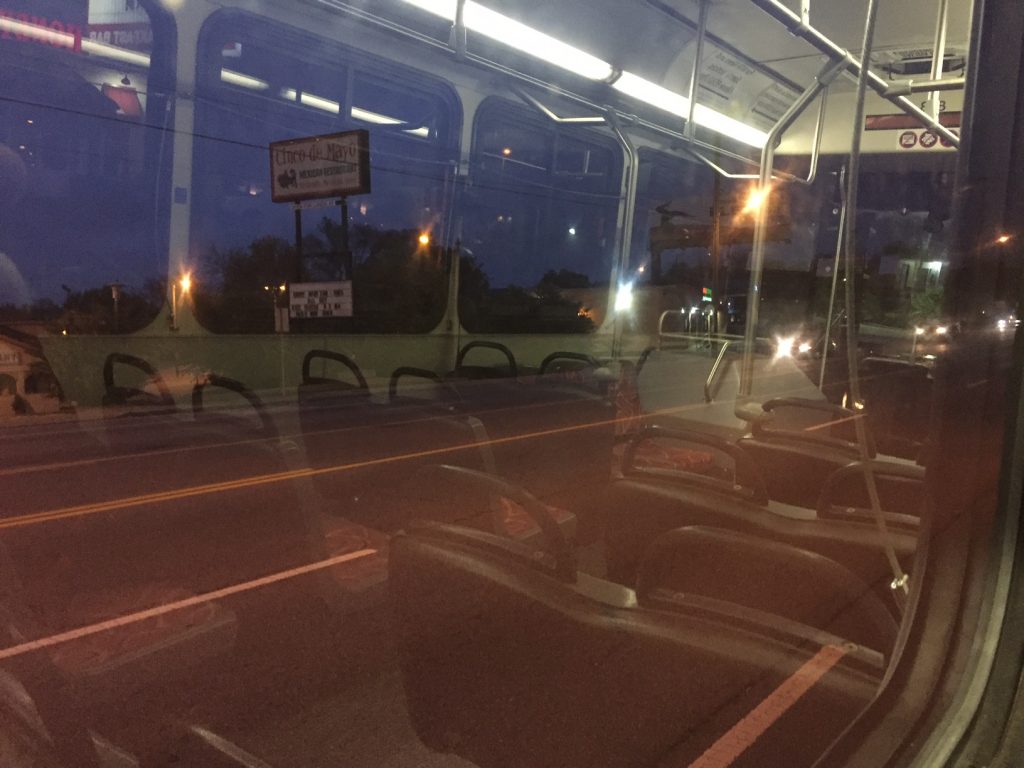
As the solstice gets closer I start going to work in the dark and coming home in the dark even though the times of my commutes are pretty much the same throughout the year. I don’t remember when I first noticed that the days got shorter in the winter, although I do remember noticing the movement of the sun from my bedroom window. My room faced west and my whole life I’d been taught that the sun comes up in the east and goes down in the west and that never changes. Like most things in life it turned out to be more complicated than that. The sun’s rising and setting positions throughout the year were not fixed, and while the setting sun blazed unobscured in the summer in the winter it gradually moved behind a stand of trees so it started to disappear even before it hit the horizon. No one else seemed bothered by this and no catastrophes resulted from the sun’s shifting position which told me it was a normal phenomenon. So the sun didn’t exactly set at due west and even though I rarely saw the sunrise because I liked to sleep late I assumed it didn’t rise at due east either. This was a valuable lesson: grownups are a bunch of liars who were afraid to tell me the whole truth, but that’s another story.
I don’t remember when I got the idea–maybe it was about the time that I learned Christmas and other midwinter celebrations were appropriated from the pagan solstice celebrations–that maybe people didn’t always know that the farther you got from the equator the more the lengths of days and nights varied throughout the year. Our very earliest ancestors, I think, emerged around the equator in Africa. Long before homo sapiens started spreading out, mostly heading north, they must have been accustomed to pretty regular days and nights. How quickly did they move north? Was their progress slow enough that they noticed that seasonal variation was a normal thing?
Even if they did there must have been some fear in the backs of their minds, especially when they got really far north, to the arctic circle and beyond, where in the very heart of winter the sun barely edges above the horizon, that the days just might keep getting shorter, that the sun might disappear and never come back.
That gives an interesting perspective on why we cluster so many holidays at the end of the year, still finding ways to celebrate the solstice.






Living the first 18 years of my life in Texas, I first experienced this phenomenon when my Dad was transferred to West Germany. We got there in the winter and I noticed that it was pitch black when I got up to go to school in the morning and I would see the sun set on the bus ride home.
I also noticed that the house where we lived had these things called rolladens installed in every window frame. They were basically shutters that were internally positioned between the panes of glass and could be lowered and raised with a nylon strap located next to the window. When lowered, these things blocked out every possible avenue that light could take to intrude in to the house. I remember wondering why such a complicated device was needed when they could just have blinds like we had in the states? Then summer came and I found out. The sun came up around 3:30 in the morning and didn’t set until around 10:00 PM. Those rolladens were necessary in order to get sleep during the summer time. They were actually pretty convenient and I’ve always wondered why they never caught on over here.
That must have been a huge shock–I didn’t realize West Germany was quite that far north. I associate that kind of light cycle with the Scandinavian countries or northern Russia. The rolladens do sound pretty convenient for areas that have dramatic swings of light. Down in Tennessee where I am it’s not that significant. The change is noticeable but not huge.
Dawn at 3:30am sounds pretty hard to deal with.
I too, was a kid in Germany, with a father in the Canadian Air Force. I remember those blinds well. Shut out the light easily. We had little candles on our Christmas tree to light up the winter night. Always an exciting venture. You never left those babies alone!
Good thinking–leaving candles alone is a very bad idea even under the best of circumstances. A Christmas tree all lit up is a beautiful sight. A Christmas tree on fire is not.
I am acquainted with the night, Chris, and am pleased to be acquainted with your interesting perspective.
I’m always happy to be acquainted with your comments.